please read every pages carefully and answer correctly
i got previous answer incorrect from other expert
we are group of 20 people if you answered correctly you will get 20 upvotes
and if you answered incorrectly you will get 20 downvotes
WHEN CONDITION TO BE TREATED AS WARRANTY (SECTION 13) may condition or elect to treat the breach of the condition as a breach of warranty and not as a ground y
treating the contract as repudiated [Sub-section (1)]
Where a contract of sale is not severable and the buyer has accepted the goods or part thereof, the breaches any condition to be fulfilled by the seller can only be treated as a breach of warranty and not as a ground rejecting the goods and treating the contract as repudiated, unless there is a term of the contract, exp or implied to that effect. [Sub-section (2)]
Nothing in this section shall affect the case of any condition or warranty fulfilment of which is excused law by reason of impossibility or otherwise. [Sub-section (3)]
Analysis:
Section 13 specifies cases where a breach of condition be treated as a breach of warranty. As a result which the buyer loses his right to rescind the contract and can claim for damages only. In the following cases, a contract is not avoided even on account of a breach of a condition:
Where the buyer altogether waives the performance of the condition. A party may for his own bene waive a stipulation.
(i) Where the buyer elects to treat the breach of the conditions, as one of a warranty. That is to say, he ma
claim only damages instead of repudiating the contract.
Example: A agrees to supply B 10 bags of first quality sugar @ 625 per bag but supplies only sect quality sugar, the price of which is 600 per bag. There is a breach of condition and the buyer can rejec the goods. But if the buyer so elects, he may treat it as a breach of warranty, accept the second qui sugar and claim damages @ 25 per bag.
(Where the contract is non-severable and the buyer has accepted either the whole goods or any g thereof. Acceptance means acceptance as envisaged in Section 72 of the Indian Contract Act, 1872
(iv) Where the fulfillment of any condition or warranty is excused by law by reason of impossibility otherwise.
Waiver of conditions
Voluntary Waiver
Waives performance of contract Elect to treat condition as warranty
Compulsory Waiver
Non-severability of contract Fulfilment of conditions excused by law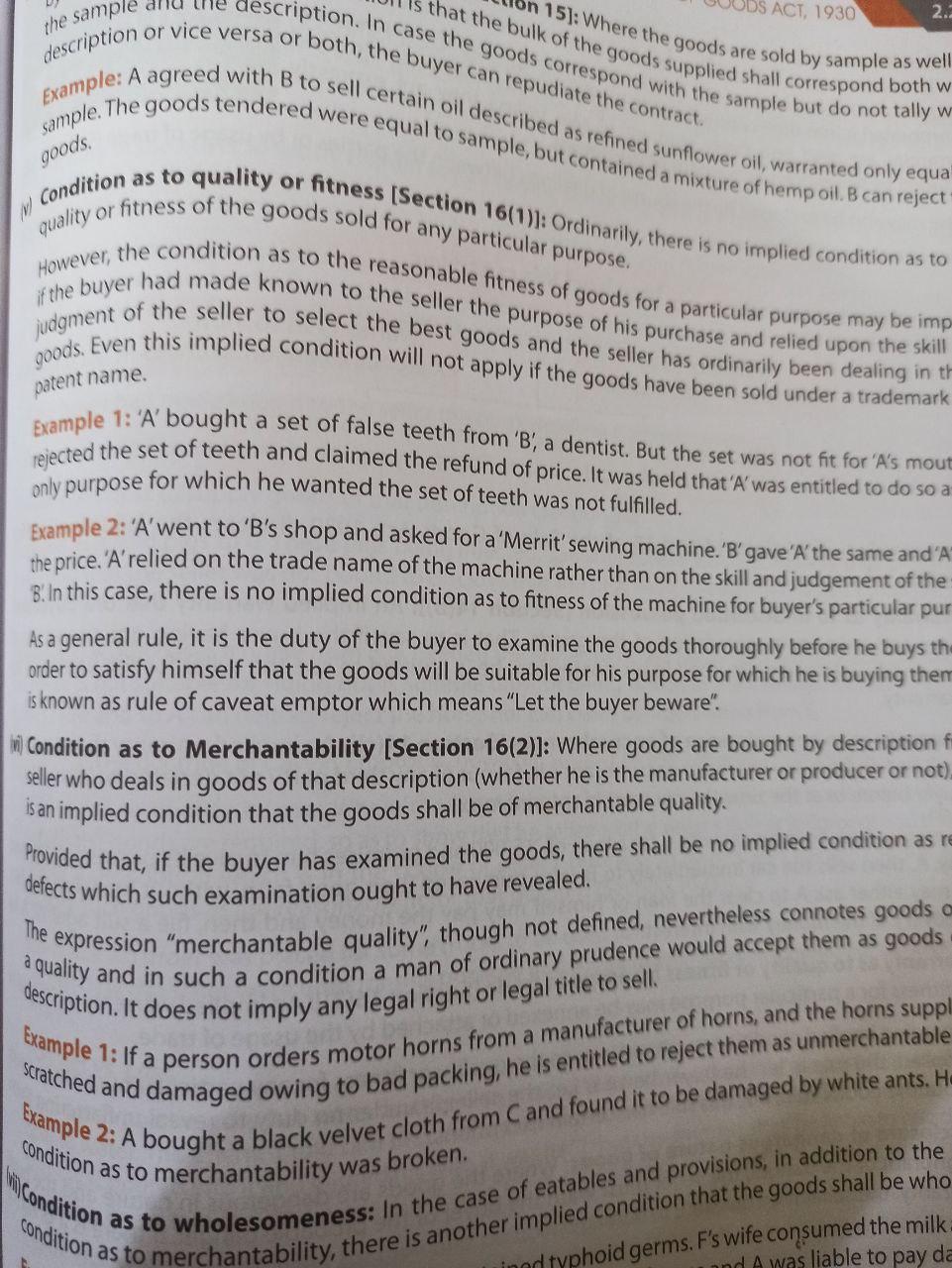
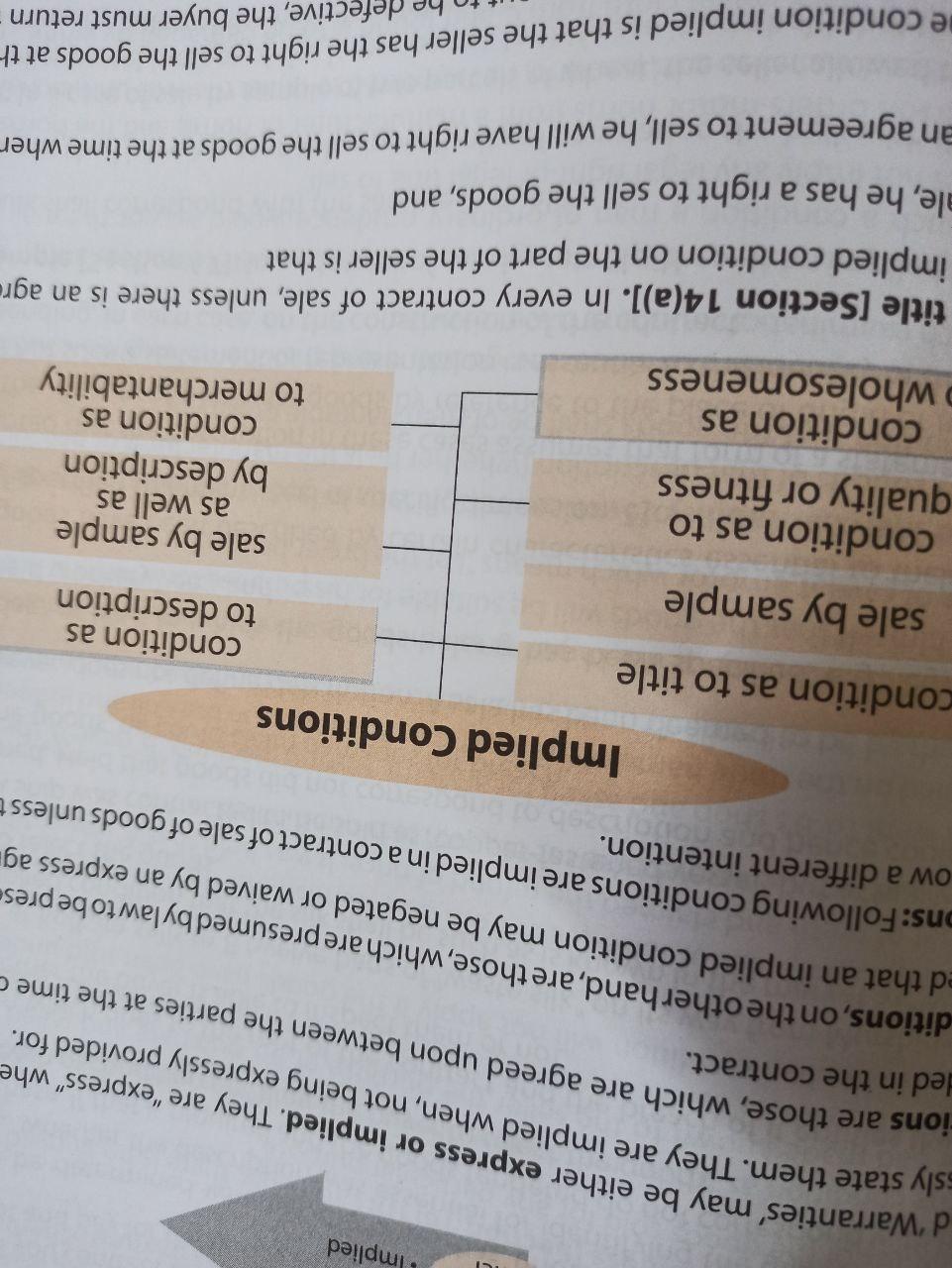

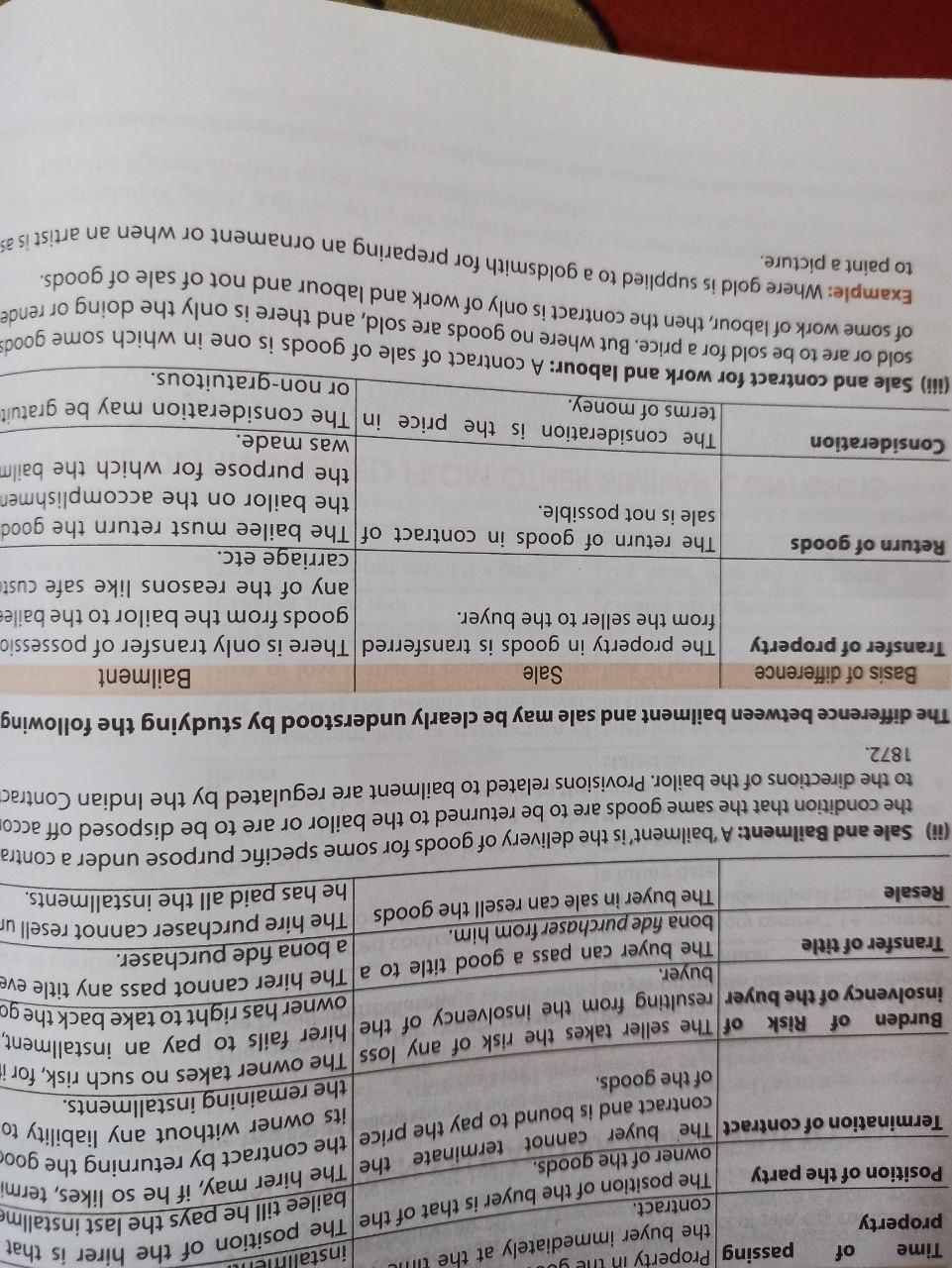
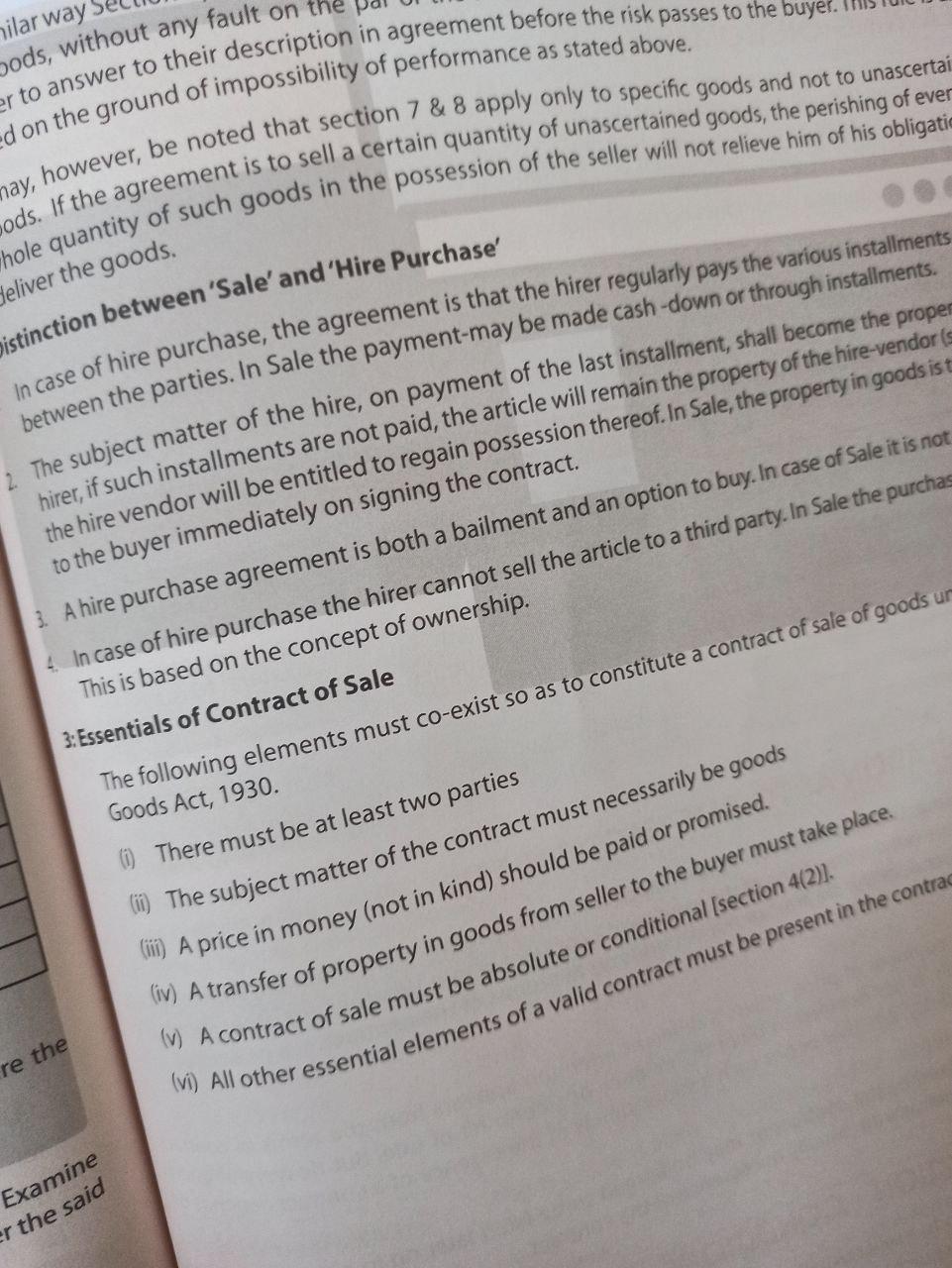
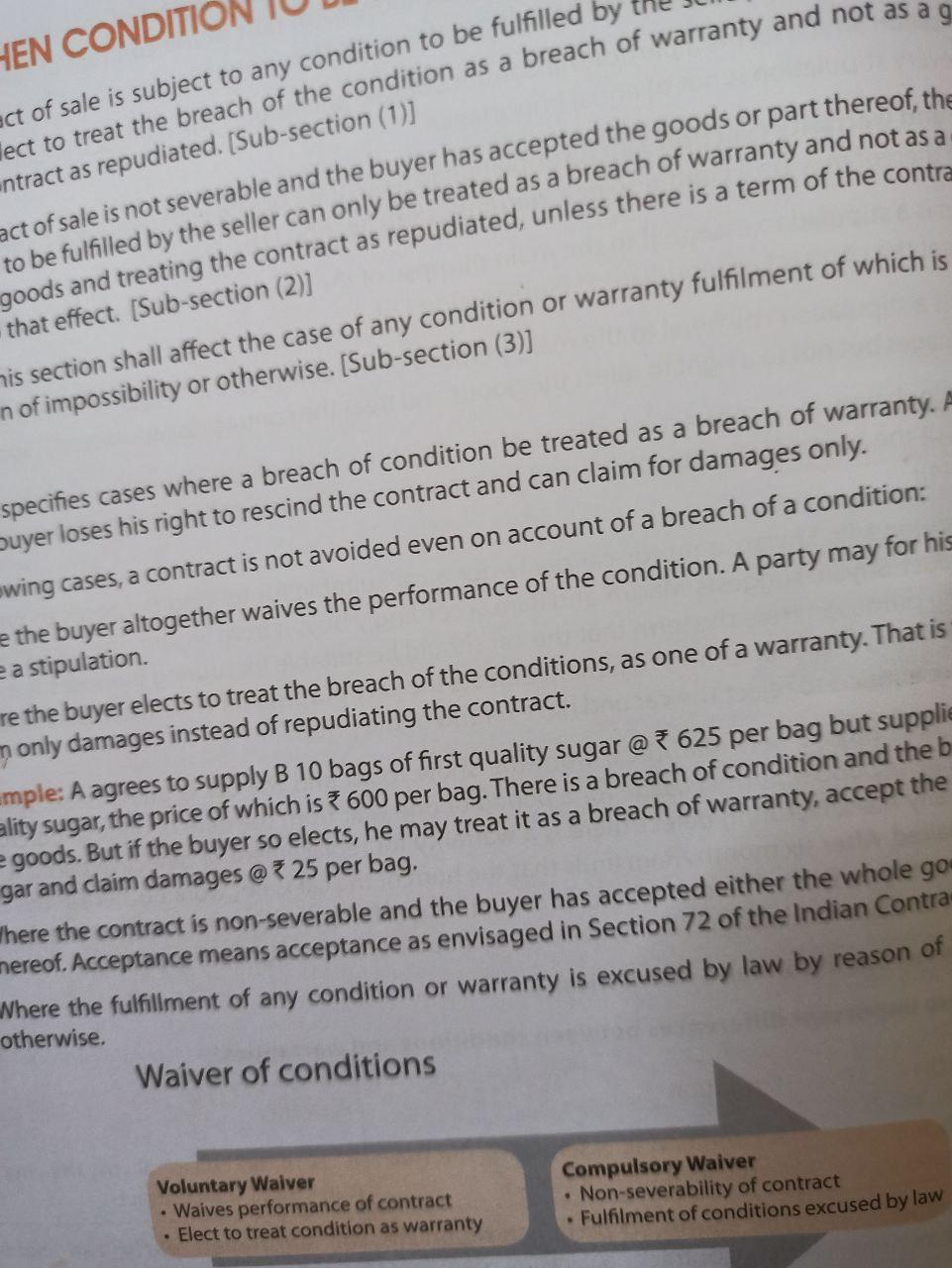
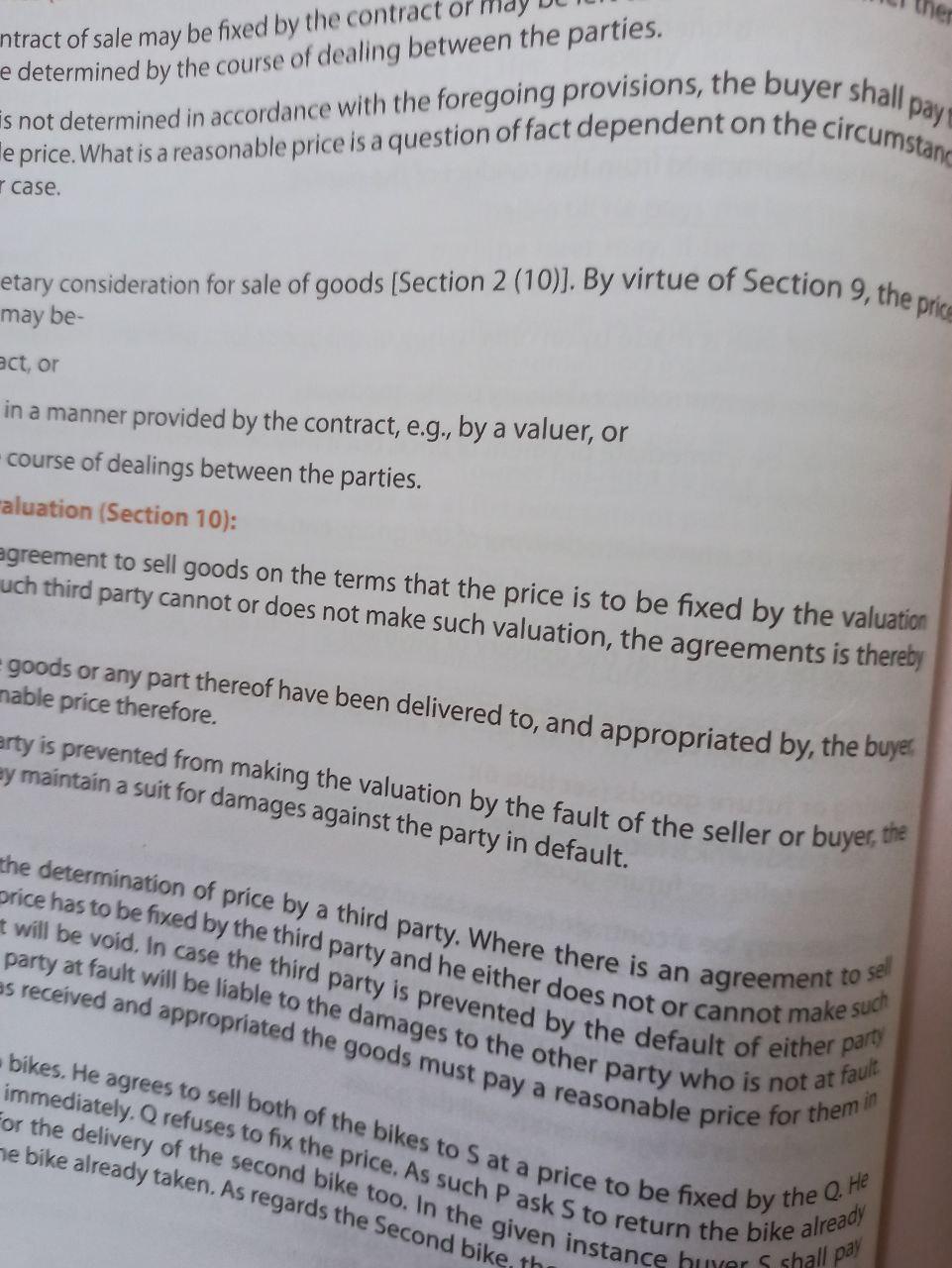

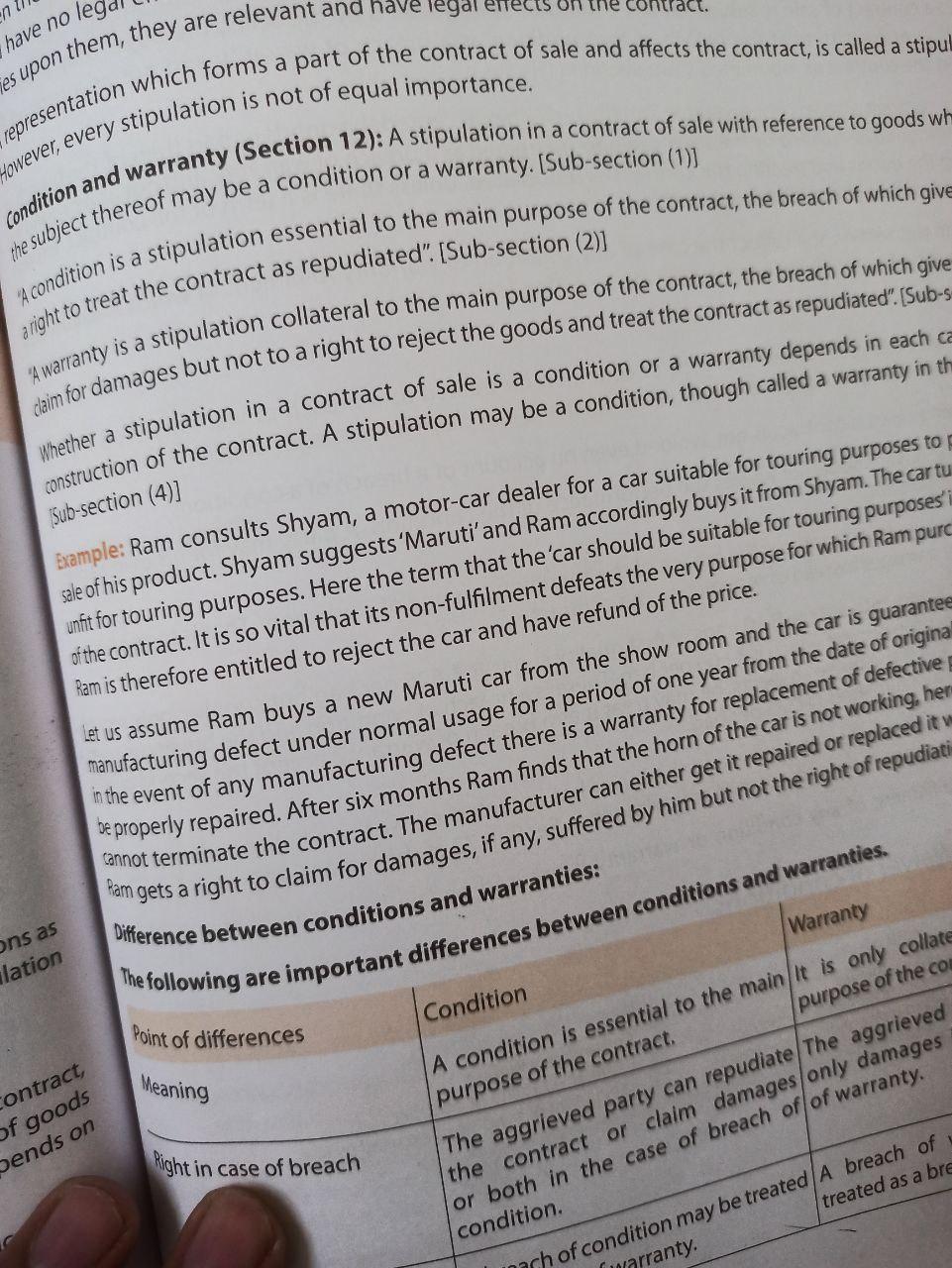
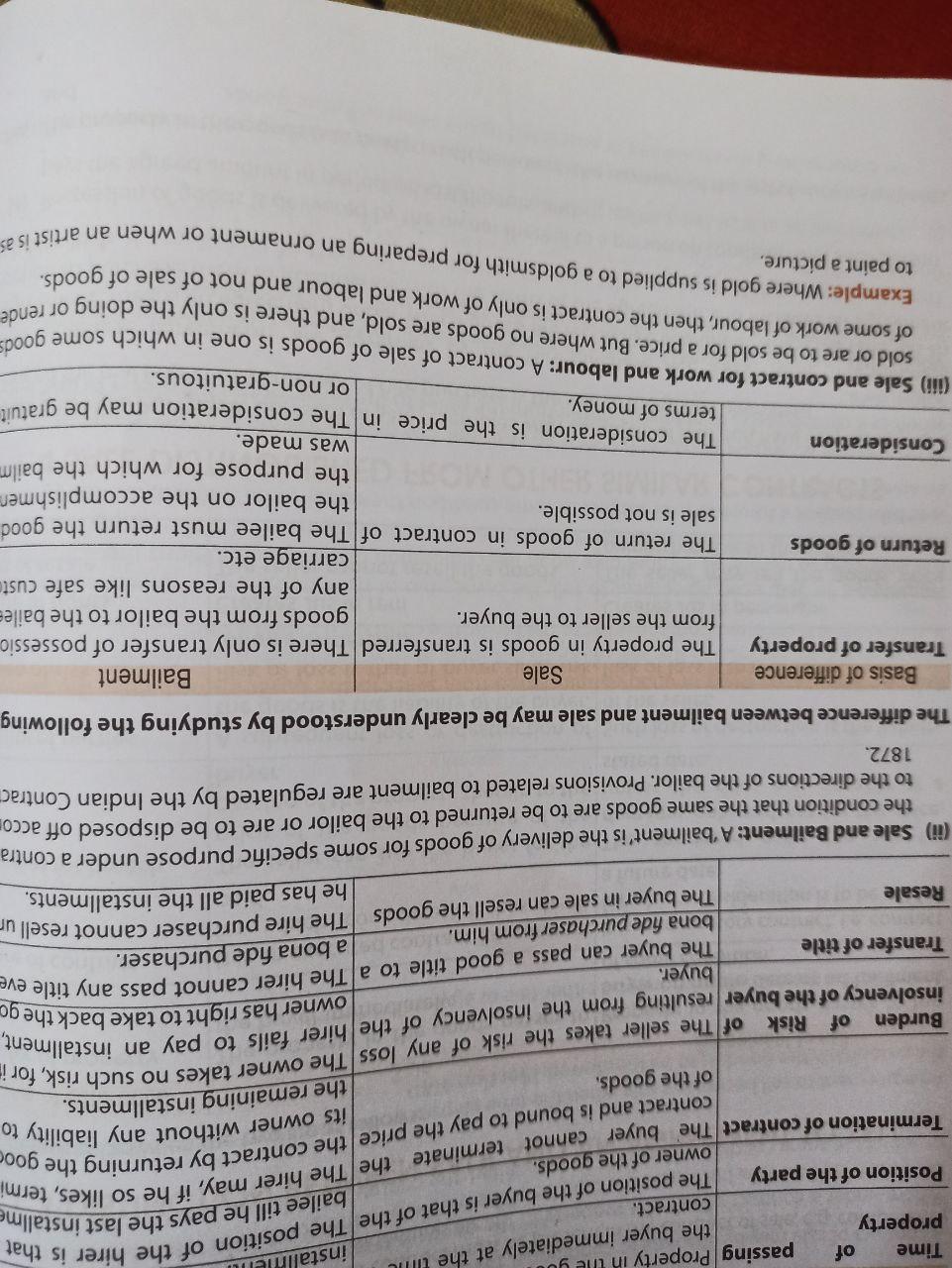

s that the bulk of the goods supplied shall correspond both w or vice versa or both, the buyer can repudiate the contract. description. In case the goods correspond with the sample but do not tally w 15]: Where the goods are sold by sample as well the sample all description ACT, 1930 2.2 Example: A agreed with B to sell certain oil described as refined sunflower oil, warranted only equa sample. The goods tendered were equal to sample, but contained a mixture of hemp oil. B can reject- goods. (V) Condition as to quality c quality vor fitness of the goods sold for any particular purpose. or fitness [Section 16(1)]: Ordinarily, there is no implied condition as to However, the condition as to the reasonable fitness of goods for a particular purpose may be imp judgment of the seller to select the best goods and the seller has ordinarily been dealing in th if the buyer had made known to the seller the purpose of his purchase and relied upon the skill goods. Even this implied condition will not apply if the goods have been sold under a trademark patent name. Example 1: 'A' bought a set of false teeth from 'B', a dentist. But the set was not fit for 'A's mout rejected the set of teeth and claimed the refund of price. It was held that A was entitled to do so a only purpose for which he wanted the set of teeth was not fulfilled. Example 2: 'A'went to 'B's shop and asked for a 'Merrit' sewing machine. B' gave 'A' the same and A the price. 'A'relied on the trade name of the machine rather than on the skill and judgement of the 8. In this case, there is no implied condition as to fitness of the machine for buyer's particular pur As a general rule, it is the duty of the buyer to examine the goods thoroughly before he buys the order to satisfy himself that the goods will be suitable for his purpose for which he is buying them is known as rule of caveat emptor which means "Let the buyer beware". Condition as to Merchantability [Section 16(2)]: Where goods are bought by description fr seller who deals in goods of that description (whether he is the manufacturer or producer or not). is an implied condition that the goods shall be of merchantable quality. Provided that, if the buyer has examined the goods, there shall be no implied condition as re defects which such examination ought to have revealed. The expression "merchantable quality", though not defined, nevertheless connotes goods a a quality and in such a condition a man of ordinary prudence would accept them as goods description. It does not imply any legal right or legal title to sell. Example 1: If a person orders motor horns from a manufacturer of horns, and the horns suppl Scratched and damaged owing to bad packing, he is entitled to reject them as unmerchantable Example 2: A bought a black velvet cloth from C and found it to be damaged by white ants. H Condition as to merchantability was broken. Condition as to wholesomeness: In the case of eatables and provisions, in addition to the condition as to merchantability, there is another implied condition that the goods shall be who ined typhoid germs. F's wife consumed the milk. and A was liable to pay da d'Warranties' may be either express or implied. They are "express" whe sly state them. They are implied when, not being expressly provided for. -ions are those, which are agreed upon between the parties at the time C ded in the contract. ditions, on the other hand, are those, which are presumed by law to be prese ed that an implied condition may be negated or waived by an express ag ow a different intention. ons: Following conditions are implied in a contract of sale of goods unless t condition as to title sale by sample condition as to quality or fitness Implied condition as o wholesomeness Implied Conditions condition as to description sale by sample as well as by description condition as to merchantability title [Section 14(a)]. In every contract of sale, unless there is an agre implied condition on the part of the seller is that ale, he has a right to sell the goods, and an agreement to sell, he will have right to sell the goods at the time wher e condition implied is that the seller has the right to sell the goods at th defective, the buyer must return E D $ 4 C R LL F 5 V T G 16 A 6 B Y MA OL WW H F7 & 7 N U G J FB * CO 8 e M I F9 K ( 9 D prt sc O

















